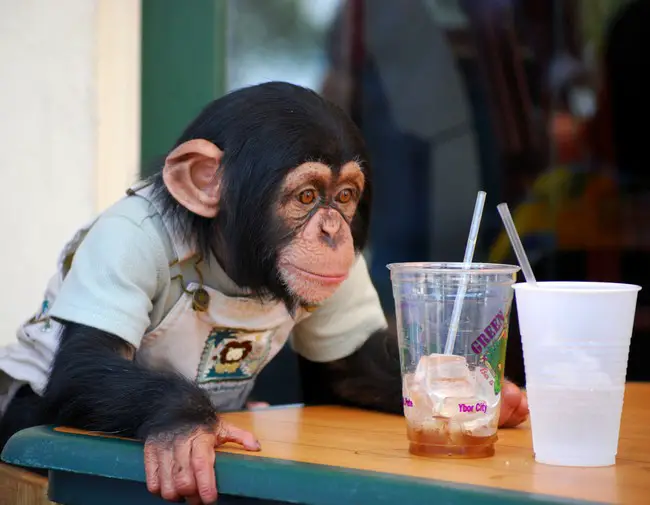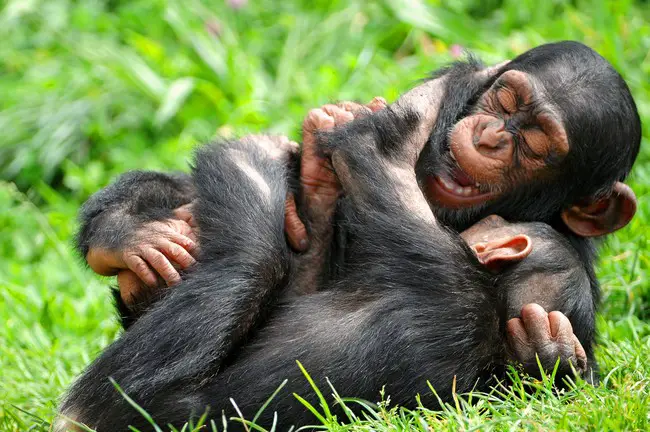Top 5 Cute and Cuddly Exotic Pets
Are you looking for an exotic pet that will really catch the attention of your friends and family? Do you want a pet that you are certain no one else you know will have? Then you don't deserve a pet! Just kidding, 🙂 but please always have in mind that having a pet is a big responsibility; and having a pet like one of these is extremely huge responsibility! Also, always get it from the shelter. Giving money for exotic pet just deepens the problem. There is a lot of animals in shelters just waiting for you. So, if you consider yourself as a very responsible person, and if you are looking for a truly unique pet that is still cute and cuddly (and you have it in your shelter), you might want to consider one of these five cute and furry exotic pets.
1. Kinkajou
Kinkajous are naturally found in the rain forest and are listed as being at “lower risk” by the IUCN Red List of Threatened Species. These cute little critters are naturally very affectionate and friendly, which make them particularly popular among exotic pet aficionados. Kinkajous do have sharp teeth that are designed to eat meet. Yet, the enjoy eating plenty of other common, every day foods such as eggs, bananas, marshmallows, and cereal. It should be noted, however, that Kinkajous are nocturnal and tend to make a great deal of noise after the sun has set.
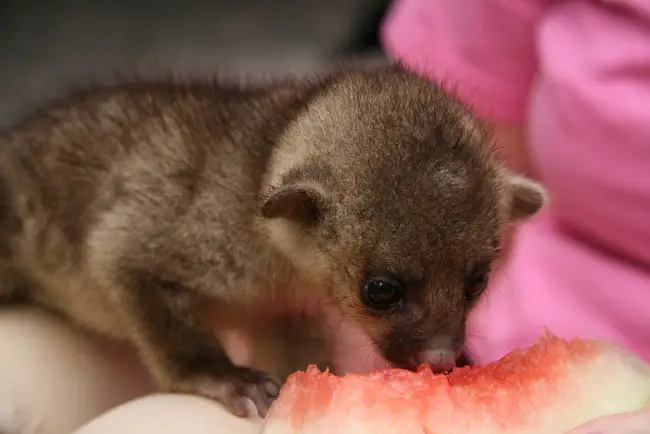
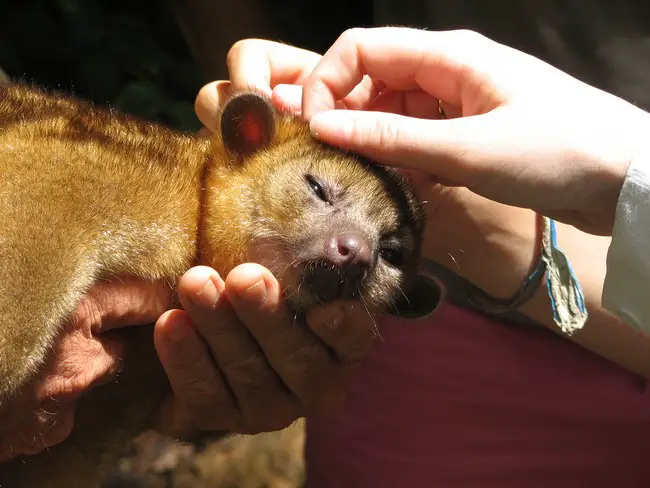
2. Bengal Cat
Despite its name, the Bengal cat is not related to the Bengal tiger in any way. Rather, they are hybrid cats that are the result of cross-breeding between house cats and exotic cats. Some variations of Bengal cats include kitties called the toyger, the Serengeti, and the cheetoh. The more pure bread the Bengal cat is, the more you can expect to pay for it. Despite their larger size, most owners of Bengal cats have very little problems with them other than those problems typically associated with owning a cat, such as the tendency to claw and tear at furniture.
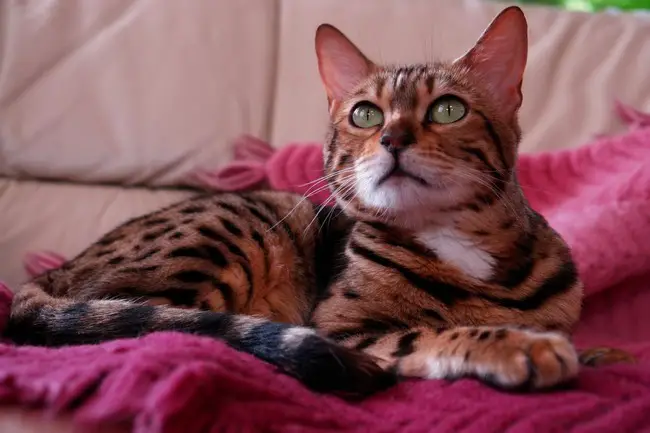
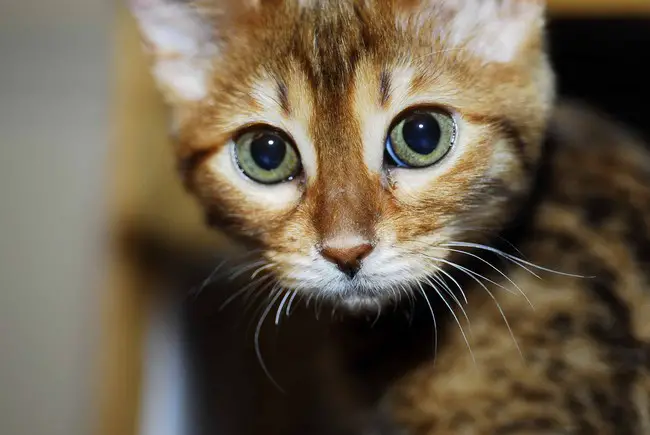
3. Sugar Glider
Sugar gliders are also listed on the IUCN Red List of Threatened Species as being at “lower risk.” As natives of Australia, it comes as little surprise that sugar gliders are marsupials. What may be a surprise, however, is that they generally don't weigh more than five ounces. Despite their small size, they are very social and love interacting with humans Like Kinkajous, they are nocturnal and want most of their owner's attention at night. Keeping two sugar gliders will help prevent boredom and depression from loneliness. It should be noted that nutritionists do not agree on the types of foods that sugar gliders should be fed, though all agree that their diets should be high in protein and should include a healthy dose of insects. In addition, sugar gliders suck their nutrients from their food, which means they make quite a mess when they spit out what they don't eat.
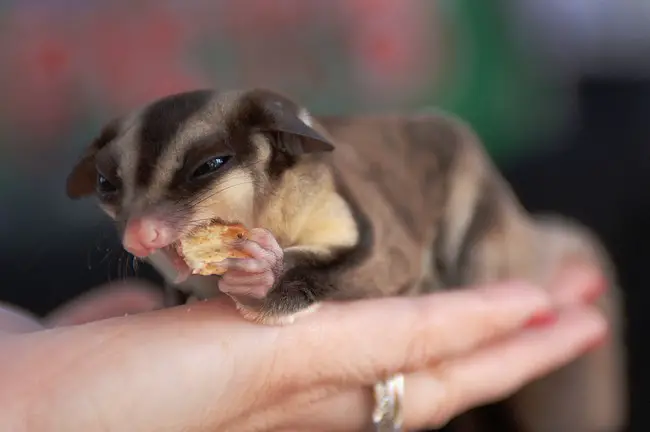
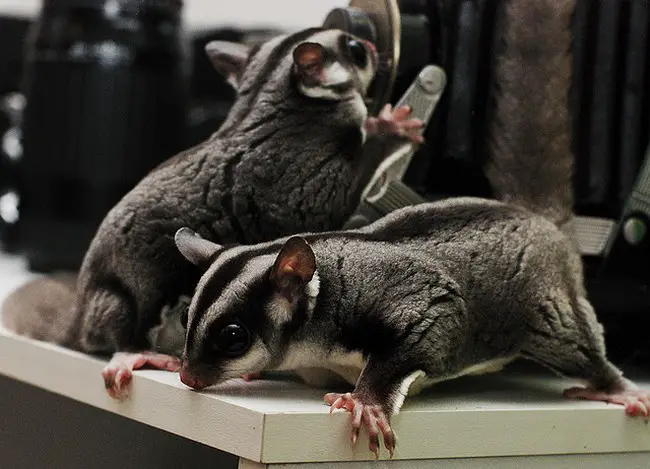
4. Squirrel Monkey
The squirrel monkey is listed on the IUCN Red List of Threatened Species as being of “least concern,” despite the fact that it only weighs 2.75 and has a number of natural predators. In order to fend off predators, squirrel monkeys tend to run in packs of up to 500 in the wild. Squirrel monkeys are quite affectionate, social, and intelligent. In fact, they have a proportionately larger brain than any other primate, including humans. Squirrel monkeys are easy to house train, but they do mark their territory and have a tendency to rub their skin and tails in their urine.
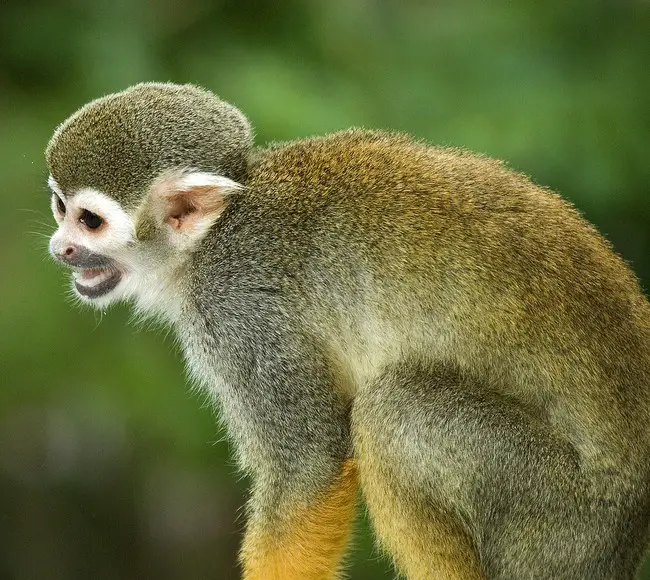
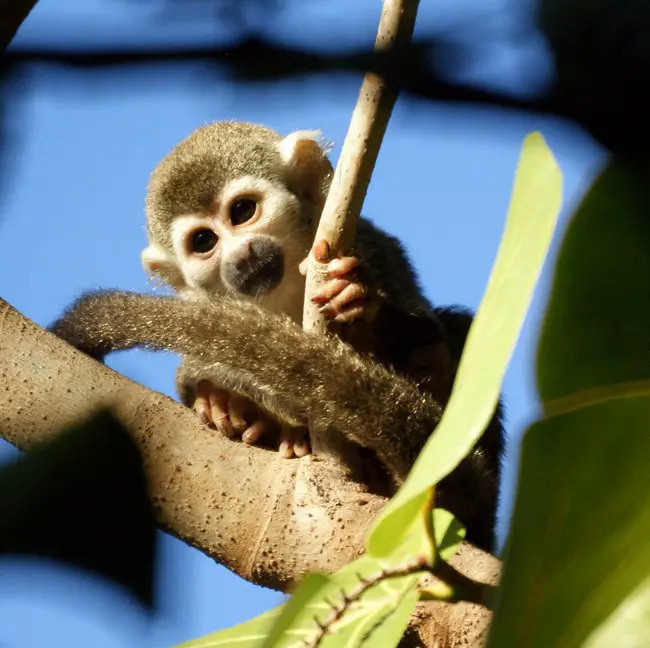
5. Chimpanzee
Actually owning a chimpanzee as a pet is quite difficult, as they are listed as endangered on the IUCN Red List of Threatened Species. Yet, they are quite fascinating creatures to observe and to spend time with. Chimps are quite intelligent and very similar to humans. In fact, we share 94% of the same DNA as chimps. Nonetheless, they are quite strong and have an upper body strength that is about five times that of a human.
